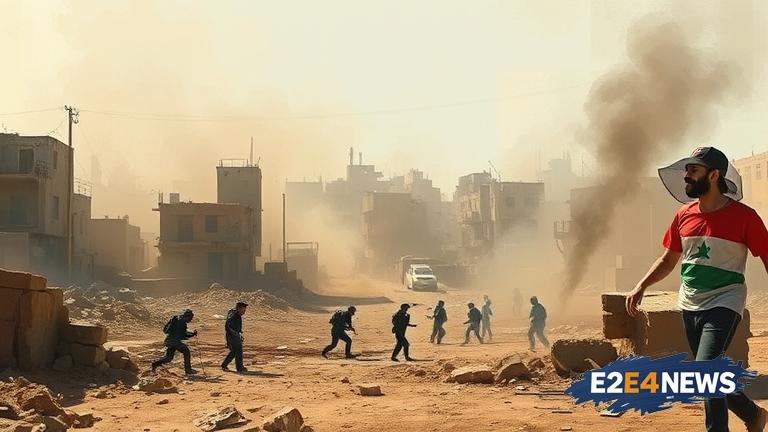The Israeli-Palestinian conflict has been ongoing for decades, with periods of relative calm punctuated by outbreaks of violence. The Gaza Strip, a coastal region bordering Egypt and Israel, has been a focal point of the conflict, with its residents facing significant challenges and hardships. The recent escalation of violence in Gaza has left many feeling hopeless and desperate, with no end in sight to the conflict. The Israeli government has imposed a blockade on Gaza, restricting the movement of people and goods, which has had a devastating impact on the local economy. The blockade has also limited access to basic necessities like food, water, and medical care, exacerbating the humanitarian crisis. The situation in Gaza is further complicated by the presence of militant groups like Hamas, which has been firing rockets into Israel, prompting retaliatory strikes from the Israeli military. The cycle of violence has resulted in significant loss of life and property, with many innocent civilians caught in the crossfire. The international community has been criticized for its response to the crisis, with some accusing governments of not doing enough to address the root causes of the conflict. The United States, in particular, has been accused of being too supportive of Israel, which has been criticized for its treatment of Palestinians. The European Union has also been criticized for its response, with some accusing it of being too slow to act. The humanitarian crisis in Gaza is not just a result of the conflict, but also of the dire economic situation. The unemployment rate in Gaza is one of the highest in the world, with many residents struggling to make ends meet. The poverty rate is also extremely high, with many families relying on aid to survive. The situation is further complicated by the lack of access to basic services like healthcare and education. The healthcare system in Gaza is on the brink of collapse, with many hospitals and medical facilities struggling to cope with the influx of patients. The education system is also under significant strain, with many schools damaged or destroyed during the conflict. The psychological toll of the conflict on residents of Gaza should not be underestimated, with many experiencing trauma and anxiety. The conflict has also had a significant impact on the environment, with many areas contaminated with unexploded ordnance and other hazardous materials. The international community must take immediate action to address the crisis in Gaza, including providing humanitarian aid and working towards a lasting resolution to the conflict. This can only be achieved through a negotiated settlement that addresses the root causes of the conflict and provides a viable solution for all parties involved. The Israeli government must also take steps to address the humanitarian crisis, including lifting the blockade and allowing for the free movement of people and goods. The Palestinian leadership must also take responsibility for addressing the crisis, including working to prevent militant groups from firing rockets into Israel. Ultimately, the only way to bring an end to the cycle of violence in Gaza is through a comprehensive and lasting peace agreement, one that addresses the needs and concerns of all parties involved. The international community must work together to achieve this goal, and to provide the necessary support and resources to help the people of Gaza rebuild their lives and communities. The situation in Gaza is a stark reminder of the devastating consequences of conflict and the importance of working towards peace and reconciliation. It is only through a commitment to peace and a willingness to work together that we can hope to bring an end to the suffering of the people of Gaza and create a brighter future for all.
